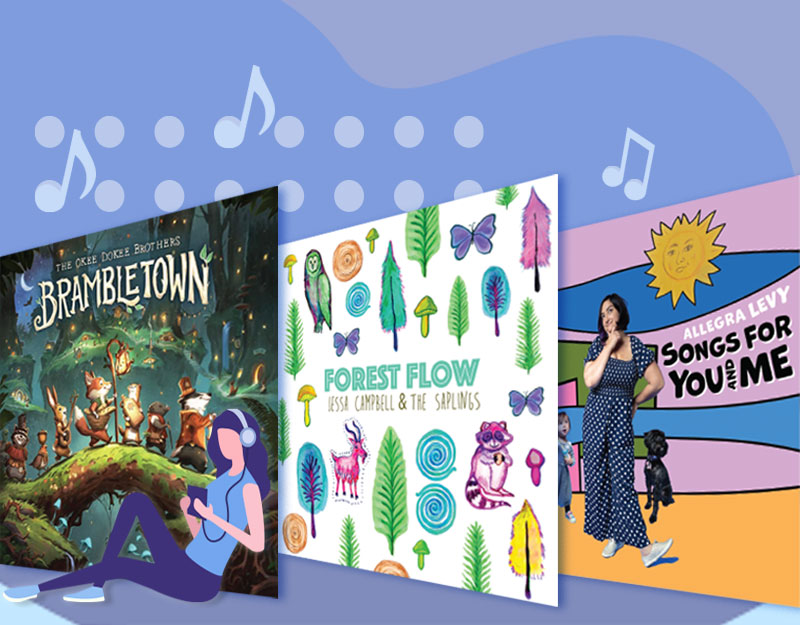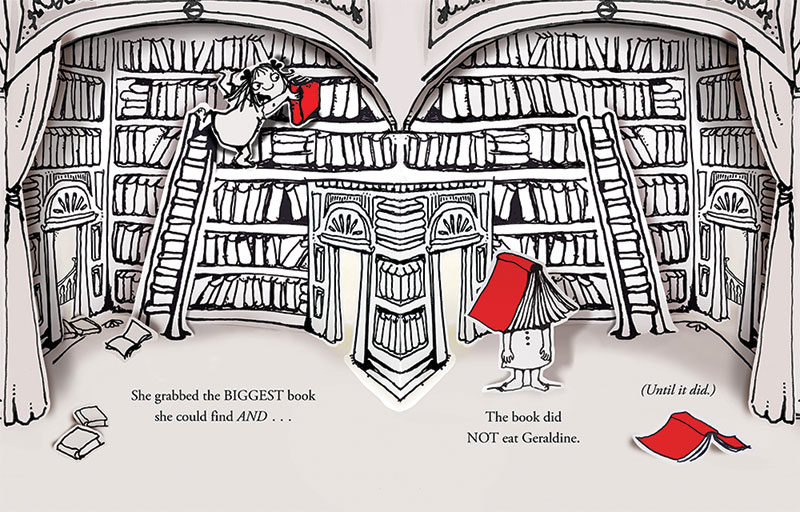Review of the Day: Absolutely Almost by Lisa Graff
 Absolutely Almost
Absolutely Almost
By Lisa Graff
Philomel (an imprint of Penguin)
$16.99
ISBN: 978-0-399-16405-7
Ages 9-12
On shelves now.
In the stage musical of Matilda, lyricist Tim Minchin begins the show with the following lines about the state of children today: “Specialness is de rigueur. / Above average is average. Go fig-ueur! / Is it some modern miracle of calculus / That such frequent miracles don’t render each one un-miraculous?” This song ran on a bit of a loop through my cranium as I read Lisa Graff latest middle grade novel Absolutely Almost. For parents, how well your child does reflects right back on you. Your child is a genius? Congratulations! You must be a genius for raising a genius. Your child is above average? Kudos to you. Wait, your child is average? Uh-oh. For some parents nothing in the world could be more embarrassing. We all want our kids to do well in school, but where do you distinguish between their happiness and how hard you’re allowed to push them to do their best? Do you take kindness into account when you’re adding up all their other sterling qualities? Maybe the wonder of Absolutely Almost is that it’s willing to give us an almost unheard of hero. Albie is not extraordinary in any possible way and he would like you to be okay with that. The question then is whether or not child readers will let him.
Things aren’t easy for Albie. He’s not what you’d call much of a natural at anything. Reading and writing is tough. Math’s a headache. He’s not the world’s greatest artist and he’s not going to win any awards for his wit. That said, Albie’s a great kid. If you want someone kind and compassionate, he’s your man. When he finds himself with a new babysitter, a girl named Calista who loves art, he’s initially skeptical. She soon wins him over, though, and good thing too since there are a lot of confusing things going on in his life. One day he’s popular and another he’s not. He’s been kicked out of his old school thanks to his grades. Then there’s the fact that his best friend is part of a reality show . . . well, things aren’t easy for Albie. But sometimes, when you’re not the best at anything, you can make it up to people by simply being the best kind of person.
ADVERTISEMENT
ADVERTISEMENT
Average people are tough. They don’t naturally lend themselves to great works of literature generally unless they’re a villain or the butt of a joke. Lots of heroes are billed as “average heroes” but how average are they really? Put another way, would they ever miscalculate a tip? Our fantasy books are full to overflowing of average kids finding out that they’re extraordinary (Percy Jackson, Harry Potter, Meg Murry, etc.). Now imagine that the book kept them ordinary. Where do you go from there? Credit where credit is due to Lisa Graff then. The literary challenge of retaining a protagonist’s everyday humdrum status is intimidating. Graff wrestles with the idea and works it to her advantage. For example, the big momentous moment in this book is when it turns out that Albie doesn’t have dyslexia and just isn’t good at reading. I’ve never seen that in a book for kids before, and it was welcome. It made it clear what kind of book we’re dealing with.
As a librarian who has read a LOT of children’s books starring “average” kids, I kept waiting for that moment when Albie discovered he had a ridiculously strong talent for, say, ukulele or poker or something. It never came. It never came and I was left realizing that it was possible that it never would. Kids are told all the time that someday they’ll find that thing that’ll make them unique. Well what if they don’t? What happens then? Absolutely Almost is willing to tell them the truth. There’s a wonderful passage where Calista and Albie are discussing the fact that he may never find something he’s good at. Calista advises, “Find something you’d want to keep doing forever… even if you stink at it. And then, if you’re lucky, with lots of practice, then one day you won’t stink so much.” Albie points out, correctly, that he might still stink at it and what then? Says Calista, “Then won’t you be glad you found something you love?”
Mind you, average heroes run a big risk. Absolutely Almost places the reader in a difficult position. More than one kid is going to find themselves angry with Albie for being dense. But the whole point of the book is that he’s just not the sharpest pencil in the box. Does that make the reader sympathetic then to his plight or a bully by proxy? It’s the age-old problem of handing the reader the same information as the hero but allowing them to understand more than that hero. If you’re smarter than the person you’re reading about, does that make you angry or understanding? I suppose it depends on the reader and the extent to which they can relate to Albie’s problem. Still, I would love to sit in on a kid book discussion group as they talked about Albie. Seems to me there will be a couple children who find their frustration with his averageness infuriating. The phrase “Choose Kind” has been used to encourage kids not to bully kids that look different than you. I’d be interested in a campaign that gave as much credence to encouraging kids not to bully those other children that aren’t as smart as they are.
I’ve followed the literary career of Lisa Graff for years and have always enjoyed her books. But with Absolutely Almost I really feel like she’s done her best work. The book does an excellent job of showing without telling. For example, Albie discusses at one point how good he is at noticing things then relates a teacher’s comment that, “if you had any skill at language, you might’ve made a very fine writer.” Graff then simply has Albie follow up that statement with a simple “That’s what she said.” You’re left wondering if he picked up on the inherent insult (or was it just a truth?) in that. Almost in direct contrast, in a rare moment of insight, his dad says something about Albie that’s surprising in its accuracy. “I think the hard thing for you, Albie… is not going to be getting what you want in life, but figuring out what that is.” I love a book that has the wherewithal to present these different sides of a single person. Such writing belies the idea that what Graff is doing here is simple.
Reading the book as a parent, I could see how my experience with Absolutely Almost was different from that of a kid reader. Take the character of Calista, for example. She’s a very sympathetic babysitter for Albie who does a lot of good for him, offering support when no one else understands. Yet she’s also just a college kid with a poorly defined sense of when to make the right and wrong choice. Spoiler Alert on the rest of this paragraph. When Albie’s suffering terribly she takes him out of school to go to the zoo and then fails to tell his parents about this executive decision on her part. A couple chapters later Albie’s mom finds out about the outing and Calista’s gone from their lives. The mom concludes that she can’t have a babysitter who lies to her and that is 100% correct. A kid reader is going to be angry with the mom, but parents, teachers, and librarians are going to be aware that this is one of those unpopular but necessary moves a parent has to face all the time. It’s part of being an adult. Sorry, kids. Calista was great, but she was also way too close to being a manic pixie dream babysitter. And trust me when I say you don’t want to have a manic pixie dream babysitter watching your children.
Remember the picture book Leo the Late Bloomer where a little tiger cub is no good at anything and then one day, somewhat magically, he’s good at EVERYTHING? Absolutely Almost is the anti-Leo the Late Bloomer. In a sense, the point of Graff’s novel is that oftentimes kindness outweighs intelligence. I remember a friend of mine in college once commenting that he would much rather that people be kind than witty. At the time this struck me as an incredible idea. I’d always gravitated towards people with a quick wit, so the idea of preferring kindness seemed revolutionary. I’m older now, but the idea hasn’t gone away. Nor is it unique to adulthood. Albie’s journey doesn’t reach some neat and tidy little conclusion by this story’s end, but it does reach a satisfying finish. Life is not going to be easy for Albie, but thanks to the lessons learned here, you’re confident that he’s gonna make it through. Let’s hope other average kids out there at least take heart from that. A hard book to write. An easy book to read.
On shelves now.
Source: Galley sent from publisher for review.
Like This? Then Try:
- Kinda Like Brothers by Coe Booth
- Locomotion by Jacqueline Woodson
- A Summer of Sundays by Lindsay Eland
Other Blog Reviews:
Professional Reviews:
- A star from Kirkus,
- A star from Publishers Weekly
- The Buffalo News
Other Reviews: BookPage
Interviews:
- Lisa speaks with BookPage about the creation of the book.
- An audio interview with Lisa about the book at Recorded Books.
Filed under: Best Books, Best Books of 2014, Reviews, Reviews 2014
About Betsy Bird
Betsy Bird is currently the Collection Development Manager of the Evanston Public Library system and a former Materials Specialist for New York Public Library. She has served on Newbery, written for Horn Book, and has done other lovely little things that she'd love to tell you about but that she's sure you'd find more interesting to hear of in person. Her opinions are her own and do not reflect those of EPL, SLJ, or any of the other acronyms you might be able to name. Follow her on Twitter: @fuseeight.
ADVERTISEMENT
ADVERTISEMENT
SLJ Blog Network
Should I make it holographic? Let’s make it holographic: a JUST ONE WAVE preorder gift for you
Magda, Intergalactic Chef: The Big Tournament | Exclusive Preview
Fifteen early Mock Newbery 2026 Contenders
When Book Bans are a Form of Discrimination, What is the Path to Justice?
RA Tool of the Week: Inside Out Inspired Emotions, but Make it YA Books
ADVERTISEMENT








I’ll have to pick up this book. I also love Lisa Graff and think she’s rocking middle grade fiction. Your review reminds me of Calli Be Gold by Michelle Hurwitz.
https://www.goodreads.com/book/show/8910678-calli-be-gold?from_search=true
Calli comes from a family of overachievers and they are convinced that she excels at something too, but what she mostly excels at is being kind. I love a good book about a normal, or average kid!
I’ve never commented here before, though your blog is a huge reason I started reading children’s books. I am curious about your frequent description of Albie, here and elsewhere, as “average.” To me, the book was very clearly about a kid who is far *below* average in some ways. Average kids do not get singled out with the horrible names that Albie get called by his average classmates. Average kids do not get kicked out of one school for academic inability and attend a special needs-type class at another. Average kids do not have a parent desperately searching for an answer to what’s “wrong” with their kid and another parent who (one infers) feels the kid is likely to be a public embarrassment. I liked this book a lot and would even suggest it for a Schneider, but obviously that can’t be if the protagonist is, in fact, average. (Only in Lake Wobegon)
Well, lovely to see you here.
You bring up an excellent point. When is a child “average” as opposed to “below average”? I suppose it all comes down to each person’s individual designation. Certainly schools specialize in designating kids one category or another, and in the case of this book Albie is kicked out of one school because he falls squarely in the “below average” designation. But if the school was for gifted children then wouldn’t that make him average? Always assuming it was a gifted school. Was he placed in a special needs class in the public school? I don’t remember that.
In the public school Albie comes off as a C kid rather than a F kid. Average kids definitely get called “dummy” by other kids, so that rang true for me. It could be that I’m a New Yorker so my interactions with New York City parents made Albie’s mom and dad sound awfully familiar. Your kid isn’t reading at the level you require so you worry that there’s something wrong with them. That’s familiar. But by the same token I could see someone reading this book and finding Albie to be special needs. I think it’s open to interpretation.
Since Albie isn’t specifically named any kind of designation, I don’t think it’s Schneider eligible. But I’ve been wrong about Schneider before, that’s for sure.
Ordinary Jack by Helen Cresswell is another book about a family of over-achievers and the “normal” or “ordinary” sibling.
Oh, I LOVE that book! Good remembering. They should bring it back, though I’m loathe to see who could possibly replace those classic Trina Schart Hyman covers.
Just wanted to chime in to say that SLJ starred it, too! We absolutely loved Albie.
My problem with this book centers around who would be the audience for the story. When I finished it, I immediately thought “I have no clue which child would enjoy reading this!” And after several days, I still wonder who it’s audience will be. I love Albie, the book is a fast read, very well written, but….
Maybe I’ll come back when I can add a child’s viewpoint. I’ll be hoping they will love the story.